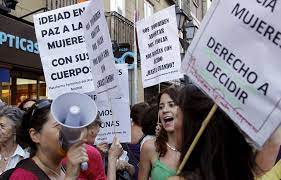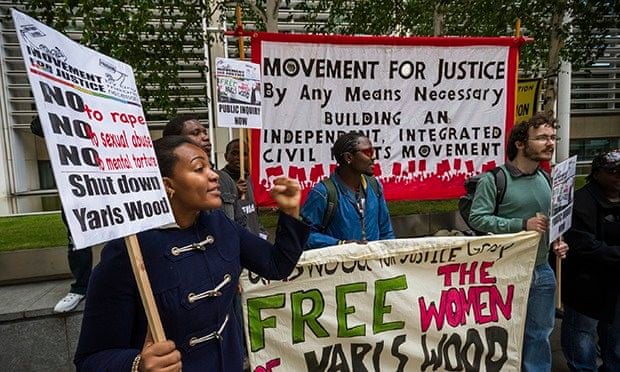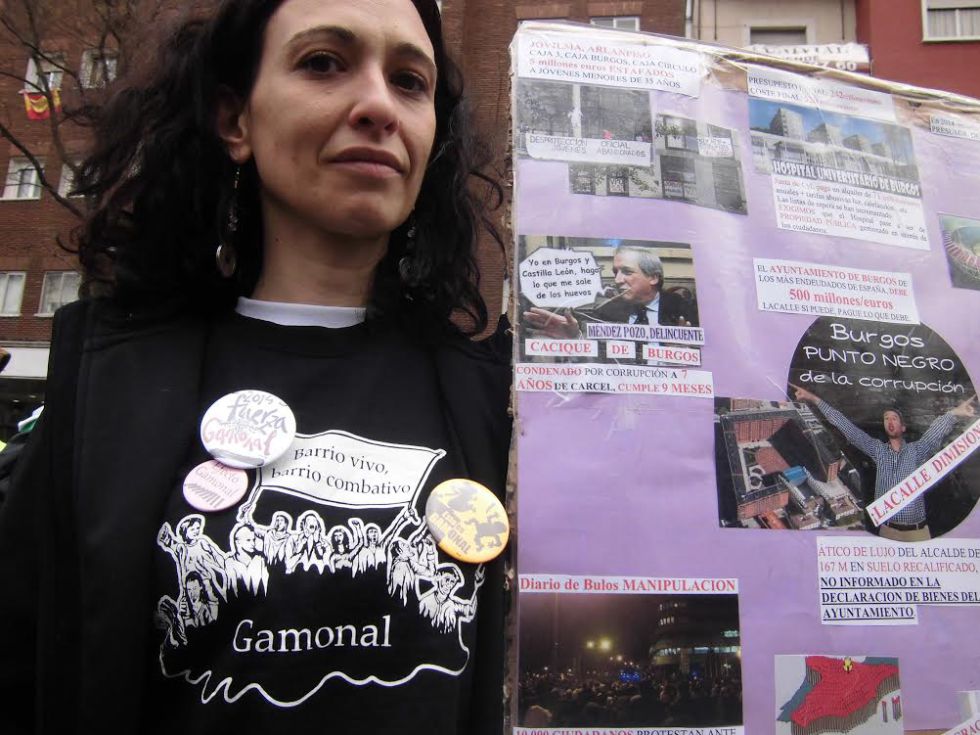
Belèn Calvo
“I came because I have dignity.”
As many as two million demonstrators converged on Madrid this weekend to reject austerity and support individual and collective dignity. For the past month, eight columns have been on the move, and Saturday, they met, as the Marches for Dignity flooded the streets and captured the imagination of the Spanish people.
Marchers and supporters have demanded no more payment of the debt; no more cuts; no more Troika; and bread, work, shelter (and roses) for all. While they have specific policy demands, such as a law establishing a basic income and an end to all evictions, the heart of the mobilization has been to demand an end to State terror and a concerted effort to build dignity. To march, and to work, for dignity is to reject the politics of fear and terror.
The marchers’ manifesto demanded equal rights for women, migrants, people of color, members of LGBTIQ communities, elders, the poor, workers, dissidents, and more. More to the point, they have demanded an end to the assaults and a beginning to real democracy and real dignity.
Women have been prominent across the sectors. Women have led the anti-eviction movement, and they have led and populated all other movements as well, from mining communities to farm communities to urban communities, from factories to schools to clinics. Women like anti-eviction activist Mamen Ruiz argued that women had been pushed to the brink, and beyond, and that now is the time. Women like Virginia, a government employee, marched to protest the astronomically rising tax rates and the new, stringent anti-abortion laws. Women like teacher Belén Calvo came because, in her words, “I have dignity.”
Women marched to secure an end to sexual violence and exploitation. They argued that women had long struggled with and organized to secure the right to live without male violence and the right to family planning. Under the Troika’s constant assault on women, and almost everyone, violence against women has intensified. Violence has intensified against women of color, immigrant and migrant women, women workers, women students, women seeking medical assistance, and the list goes on.
Outside of Spain and the usual suspects, the Western media has barely covered the largest protest in recent Spanish history, except to note that they ended with some clashes between police and a very small number of demonstrators. Whether police or protesters began those clashes remains debatable. What is clear is that the only `news fit to print’ is violence, however incidental.
For the international news media, austerity is the new normal. Meanwhile, anti-austerity resistance is gaining ground in Greece, Cyprus, Ireland, Portugal, Spain. Much of the prison resistance organizing in the United Kingdom, United States and Australia is anti-austerity at its core. Much of the protests about public service in South Africa are as much about the State’s austerity development program as the shoddy service. In each instance, women are at the core of organizing. In each instance, women echo Belén Calvo: “I come because I have dignity.”
The message is clear. End the reign of terror and torture that passes for austerity. Remember, we each and all came because we have dignity.
(Photo Credit: El Pais / J.J.G.)
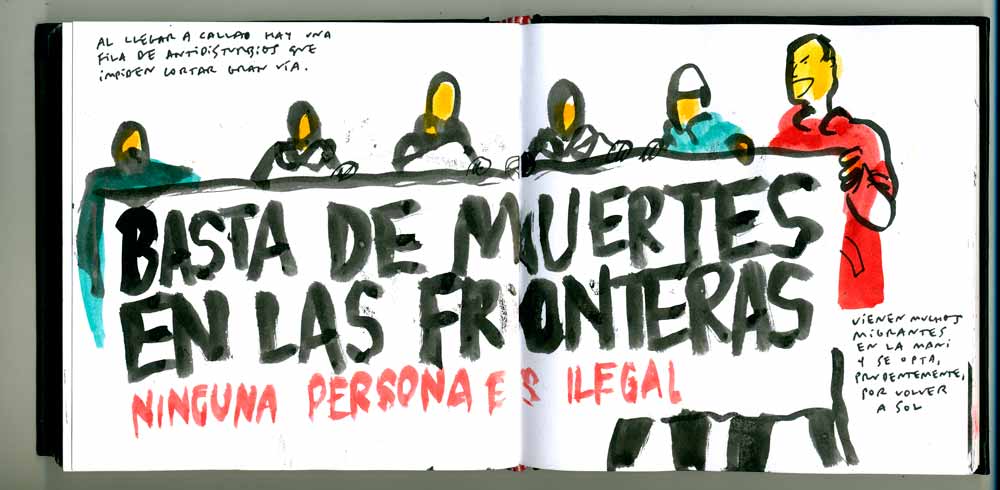

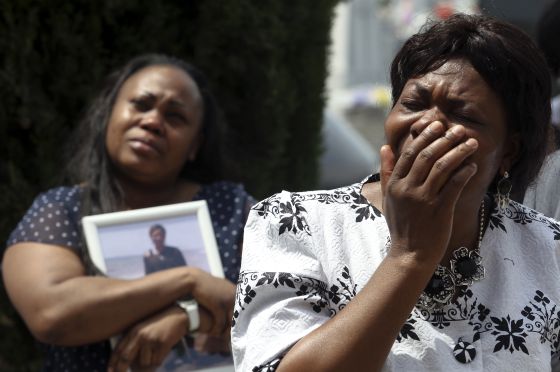 Samba Martine died, or was killed,
Samba Martine died, or was killed, 